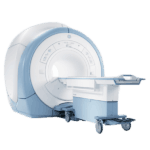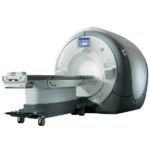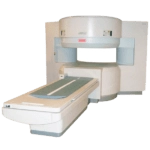Serious accidents in MRI suites are rare, but that doesn’t mean safety precautions shouldn’t be taken into serious consideration
Serious accidents in MRI suites are rare, but that doesn’t mean MRI safety precautions shouldn’t be taken into serious consideration anyway. An article was recently published in the Journal of the American College of Radiology that described how to reduce or eliminate injuries and accidents entirely within the MRI suite. “With careful consideration, control, and training, imaging with MR can be a relatively innocuous experience for both patients and personnel”, the article states.
The safety risks go up as the amount of people increase near theMRI scanner, meaning it creates a “great potential for accidents that could occur if metals from the environment, adornments, implants, and other unintended sources are also present in or near the field. … Through carefully structured oversight and the establishment of strict guidelines regarding access, responsibilities, and training, these risks can be mitigated, and accidents can be prevented,” wrote lead author Dr. Nathan Cross, from the University of Washington.
Danger comes in the form of metallic devices most often, meaning oxygen tanks, wheelchairs, and other medical equipment that could become projectiles with the MRI’s powerful magnet. A man in India was recently killed after he brought an oxygen tank into an MRI suite while there for a family member. And while the hospital had protocols put into place to prevent such a disaster, the staff wasn’t following them at the time.
Training and screening for MRI safety
Staff training should be comprehensive when it comes to MRI safety. Dr. Cross recommends training based on a person’s level of involvement in the MRI scan process:
- Level 1: medical assistants, radiology nurses, radiologists, and others who are seldom in the MRI suite and would require a minimal amount of training
- Level 2: technologists, radiologists, physicists, scientists, engineers, and others who routinely work in and around the scanner
Get Started
Request Pricing Today!
We’re here to help! Simply fill out the form to tell us a bit about your project. We’ll contact you to set up a conversation so we can discuss how we can best meet your needs. Thank you for considering us!
Great support & services
Save time and energy
Peace of mind
Risk reduction
Everyone else needs to be screened before they are allowed near the MRI suite, and should receive minimal training if repeat access is necessary.
It is also recommended that MRI medical directors, safety officers, and safety experts be put into place by imaging centers. An MRI physician is the ideal candidate for the medical director post, who should ensure guidelines are “created, implemented, and adhered to at all times,” while the safety officer should ideally be an MRI technologist, who will oversee the “safe operation and execution of MRI and monitoring of its associated environment,” Dr. Cross and his colleagues wrote in the article.
The American College of Radiology, the American Board of Magnetic Resonance Safety, and the Joint Commission are all great resources for facilities looking to implement comprehensive MRI safety at all levels with an imaging center. The authors noted that the directives go beyond the aforemented strategies to include documenting “patient safety issues involving nephrogenic systemic fibrosis, implanted devices, acoustic noise, and claustrophobia and to perform the appropriate corrective actions in each instance.”
“With these resources and a carefully selected team, the risk for MRI-related accidents can be vastly reduced if not completely eliminated,” they concluded.
You can find the full article published in the Journal of the American College of Radiology here: Avoiding MRI-Related Accidents: A Practical Approach to Implementing MR Safety



